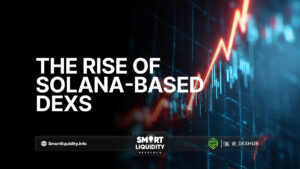Risks Associated with Decentralized Exchanges


Decentralized exchanges (DEXs) have become a popular alternative to traditional centralized platforms, offering users greater control over their assets. However, while DEXs come with several advantages, such as enhanced privacy and reduced risk of platform failures, they also present significant risks that traders must be aware of.
One major risk associated with DEXs is the possibility of security vulnerabilities. Since DEXs operate without a central authority, they rely heavily on smart contracts to facilitate transactions. If there are flaws in these contracts, they can be exploited by malicious actors, leading to substantial financial losses. Furthermore, although users maintain control of their private keys, this means they are fully responsible for securing their funds. Without proper precautions, such as hardware wallets, assets can be stolen through phishing or other social engineering attacks.
Another challenge is the lack of customer support. Unlike centralized exchanges, which typically offer dedicated customer service, DEXs have no centralized entity to assist users with disputes, technical issues, or fraud. As a result, resolving issues on a DEX can be difficult and time-consuming. Additionally, DEXs may be less user-friendly, especially for beginners. Many require a higher level of technical knowledge to navigate effectively, which can be a barrier to entry for some traders.
Liquidity is another concern. While larger DEXs may have decent liquidity, smaller platforms can suffer from low trading volumes, resulting in slippage and poor execution prices. This can be particularly problematic during periods of high market volatility.
In conclusion, while DEXs offer increased privacy and control over assets, they come with inherent risks. Users should exercise caution, conduct thorough research, and ensure they have the necessary technical knowledge before engaging with decentralized exchanges. By understanding these risks, traders can make more informed decisions and protect their investments.




